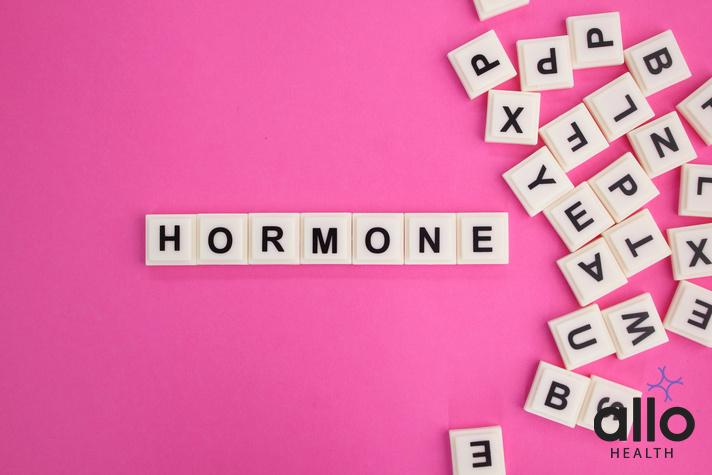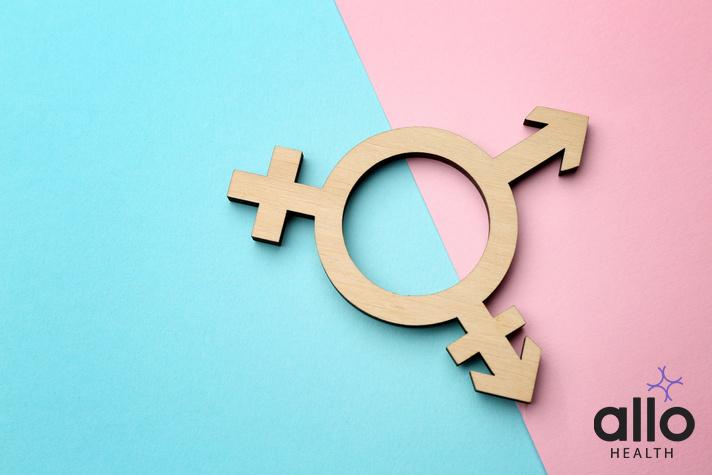Can Transgender Women Ejaculate?

Allo Health is dedicated to personalized well-being, offering support and trusted information tailored to individual health goals. The platform emphasizes human-generated content, led by a distinguished medical team of experts, including physicians and sexual health specialists. Their commitment to credibility involves rigorous fact-checking, authoritative research, and continuous updates to ensure accurate, up-to-date information. Allo Health's unique approach goes beyond conventional platforms, providing expert-led insights and a continuous commitment to excellence, with user feedback playing a crucial role in shaping the platform's authoritative voice.

Dr Saachi has done her MBBS from Kasturba Medical College, Manipal. She has worked as a research observer in Dept. of microbiology; she also has a keen interest in the human psyche, relationships and Sexual health.
Why This Was Upated?
Our experts continually monitor the health and wellness space, and we update our articles when new information became available.
Updated on 31 May, 2024
- Article was updated as part of our commitment to diversity, equity, and inclusion.

"The following blog article provides general information and insights on various topics. However, it is important to note that the information presented is not intended as professional advice in any specific field or area. The content of this blog is for general educational and informational purposes only.
Book consultation
The content should not be interpreted as endorsement, recommendation, or guarantee of any product, service, or information mentioned. Readers are solely responsible for the decisions and actions they take based on the information provided in this blog. It is essential to exercise individual judgment, critical thinking, and personal responsibility when applying or implementing any information or suggestions discussed in the blog."
Exploring the intricacies of transgender women’s bodies raises questions about ejaculation. While every individual’s experience varies, some transgender women may produce ejaculation, often referred to as ‘trans female ejaculation.’ This phenomenon, influenced by hormone therapy hormone treatment, and surgical interventions, differs in composition from the cisgender male ejaculate. Understanding this aspect of transgender women’s sexual health is crucial for providing inclusive and accurate information, promoting acceptance, and fostering respectful discourse around transgender experiences and identities.
Understanding the Differences between Transgender Women and Cisgender Women’s Anatomy

- Chromosomal Makeup: Transgender women may have XY chromosomes, while cisgender women typically have XX chromosomes.
- Hormonal Profile: Transgender women often undergo hormone therapy and hormonal treatment to align their bodies with their gender identity, impacting secondary sexual characteristics.
- Reproductive Organs: Cisgender women have ovaries, fallopian tubes, and a uterus, while transgender women may or may not have these organs depending on surgical interventions.
- External Genitalia: Transgender women may have undergone genital reconstruction surgery, while cisgender women typically have external genitalia corresponding to their assigned sex at birth.
- Breast Development: Hormone therapy can lead to breast development in both transgender and cisgender women, though the timing and extent may vary.
- Pelvic Structure: While both groups may have similar pelvic structures, there can be differences due to hormonal influences during development or surgical alterations. Understanding these distinctions fosters inclusivity and respect for diverse experiences.
The Role of Hormone Therapy in Ejaculation in Transgender Women

- Hormone therapy for transgender women typically involves estrogen therapy to feminize their bodies.
- Estrogen levels reduce the production of testosterone, leading to changes in sexual function, including ejaculation.
- Many transgender women report a decrease or cessation of ejaculation with estrogen therapy.
- Estrogen therapy can result in decreased semen volume and altered consistency of ejaculation.
- Some transgender women may experience a gradual decline in erectile function and decreased sensation in the genitals, impacting ejaculation.
- The effects of hormone therapy on ejaculation vary among individuals, with some experiencing complete loss of ejaculatory function and others experiencing partial changes.
- It’s essential for healthcare providers to discuss potential changes in sexual function, including ejaculation, with transgender women before starting hormone therapy.
- Individual experiences and goals should be considered when discussing the potential impact of hormone therapy on ejaculation.
What is the Science Behind Ejaculation in Transgender Women?
- Ejaculation in transgender women typically involves the release of fluid from the prostate gland.
- This fluid may differ in composition from ejaculate produced by cisgender men.
- Hormone replacement therapy (HRT) can impact the volume and consistency of ejaculatory fluid.
- Surgical interventions such as vaginoplasty may alter the anatomy, potentially affecting ejaculation.
- Consulting with healthcare professionals knowledgeable about transgender health is crucial for accurate information, medical treatment, and support, to maintain the quality of life.
Common Misconceptions about Transgender Women and Ejaculation
- Misconception: Transgender women cannot ejaculate.
- Reality: Some transgender women can ejaculate, as ejaculation is not solely tied to anatomy but can also involve hormonal factors.
- Misconception: Ejaculation in transgender women is always the same as in cisgender men.
- Reality: Ejaculation experiences vary among individuals regardless of gender identity. Transgender women may have different sensations and amounts of ejaculation.
- Misconception: Transgender women who ejaculate are not truly women.
- Reality: Gender identity is not determined by physiological functions like ejaculation. Transgender women are women regardless of their ability to ejaculate.
- Misconception: Ejaculation in transgender women is a sign of not being truly transgender.
- Reality: Gender identity and bodily functions are separate. Ejaculation does not determine or invalidate someone’s gender identity as a transgender woman.
Exploring the Importance of Sexual Health for Transgender Women
- Understanding Identity: Acknowledge the unique journey of transgender women and their diverse experiences with sexual health.
- Access to Care: Highlight the challenges many transgender women face in accessing affirming and comprehensive sexual health care.
- Hormone Therapy: Discuss the impact of hormone therapy on sexual health, including potential changes in libido, arousal, and genital health.
- Safe Sex Practices: Emphasize the importance of safe sex practices, including barrier methods and regular testing for sexually transmitted infections (STIs).
- Mental Health: Address the intersection of sexual health and mental well-being for transgender women, including the impact of stigma and discrimination.
- Affirming Relationships: Explore the role of affirming and supportive relationships in promoting sexual health and overall well-being.
- Community Support: Highlight the importance of community support and resources tailored to the unique needs of transgender women for fostering sexual health empowerment.
The Psychological Effects of Ejaculation for Transgender Women

- Gender Dysphoria: Ejaculation may trigger feelings of dysphoria in transgender women, reminding them of their assigned gender at birth.
- Identity Validation: Some transgender women may experience validation of their gender identity through ejaculation, viewing it as a confirmation of their femininity.
- Emotional Impact: Ejaculation can elicit a range of emotions, from euphoria to distress (psychological distress), depending on individual experiences and perceptions.
- Body Image: For some transgender women, ejaculation may heighten concerns about their body image and how it aligns with their gender identity.
- Relationship Dynamics: Ejaculation may influence interpersonal dynamics within relationships, impacting communication, intimacy, and sexual satisfaction.
- Coping Mechanisms: Transgender women may develop coping strategies to navigate the psychological effects of ejaculation, including therapy, support groups, and self-reflection.
- Self-Exploration: Exploring one’s relationship with ejaculation can be a part of self-discovery and understanding within the transgender experience.
Navigating Sexual Relationships as a Transgender Woman Who Can Ejaculate
- Understanding Identity: Embrace your transgender identity while navigating sexual relationships.
- Communication is Key: Openly communicate with partners about your unique experiences and needs.
- Exploring Comfort: Take time to explore what feels comfortable and pleasurable for you in intimate situations.
- Educating Partners: Educate partners about transgender experiences and the diversity within the community.
- Consent and Boundaries: Set clear boundaries and ensure mutual consent in all sexual encounters.
- Managing Expectations: Recognize that not all partners may understand or be comfortable with your ability to ejaculate.
- Seeking Support: Connect with supportive communities or seek therapy to navigate challenges and celebrate your sexuality.
- Self-Acceptance: Embrace self-love and acceptance as you navigate your unique sexual journey as a transgender woman and transgender people as a whole.
Legal and Social Implications of Ejaculation for Transgender Women
- Legal Recognition: Legal frameworks vary globally regarding the recognition of transgender women’s ejaculation. In some jurisdictions, it may be considered a marker of femininity, while in others, it might not factor into legal gender recognition.
- Medical Context: Ejaculation in transgender women can be a result of hormone replacement therapy (HRT) surgical interventions or other medical history. However, medical professionals may have differing opinions on its significance or implications.
- Social Perceptions: Societal attitudes towards transgender women’s ejaculation can vary widely, ranging from acceptance to stigmatization. This can impact their self-esteem, relationships, and overall well-being.
- Sexual Health: Understanding ejaculation in transgender women is crucial for sexual health discussions, including contraception, STI prevention, and fertility concerns.
- Advocacy and Education: Advocacy efforts are necessary to promote accurate information, combat stigma, and advocate for the rights and healthcare needs of transgender women, including those related to ejaculation.
Most Asked Questions
-
Can all transgender women ejaculate?
Ejaculation among transgender women varies. Factors such as hormone replacement therapy (HRT), surgical interventions, and individual physiology influence this.
-
Does hormone replacement therapy (HRT) affect ejaculation in transgender women?
HRT can impact ejaculation. Estrogen therapy may reduce ejaculatory function, while some anti-androgens can also affect ejaculation.
-
Can surgical procedures affect ejaculation in transgender women?
Surgical procedures such as vaginoplasty or orchiectomy can impact ejaculation. Vaginoplasty typically removes the prostate, reducing ejaculatory function, while orchiectomy removes the testes, affecting sperm production and ejaculatory volume.
-
Is ejaculation in transgender women the same as in cisgender women?
Ejaculation experiences can vary between transgender and cisgender women. While both may experience ejaculation, the physiological mechanisms and experiences can differ.
-
Can transgender women conceive through ejaculation?
Ejaculation in transgender women may contain sperm if the individual has not undergone surgical interventions like orchiectomy. However, fertility depends on various factors such as hormone therapy duration and sperm count.






































